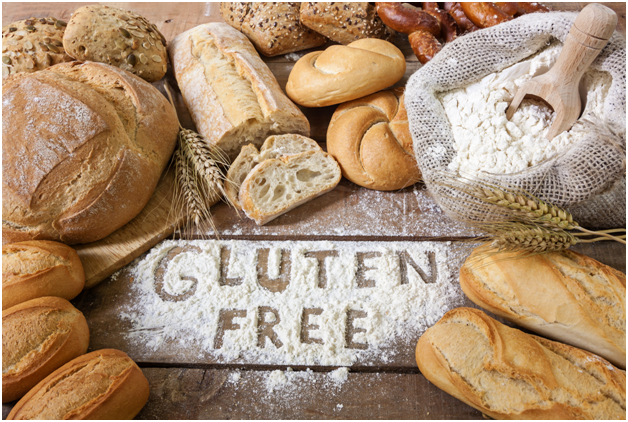It has been estimated that 8.5 million people in the UK have gone “gluten-free” in recent years. With only 1% of the population having coeliac disease (a gluten allergy), it calls into question why people choose a gluten-free diet and if there are any benefits from avoiding gluten.

The vast majority of those who choose to avoid gluten do it as a weight-loss technique (not being able to eat most bread, pasta and cakes mean snacking options are limited) or because they believe it makes them feel physically better. Many people who are not coeliac claim to suffer from gut symptoms such as bloating and nausea after eating gluten. For those people, is going gluten-free the best option?
What are the Pros of a Gluten-Free Diet?
A positive of adopting a gluten-free diet is the limitation of snacks and calorie-dense foodstuff which may aid weight loss. However, cutting out gluten results in the elimination of an entire food group from the diet which may have dangers for health unless you pay close attention to your nutrition. Dietary whole grains are high in nutrition, including fibre, iron, B vitamins and calcium. Avoiding such foods could result in a low fibre diet which is detrimental to health.
A study shown on a BBC television show called “I’m A Doctor” in 2016 assessed the physical reactions of non-coeliac volunteers eating gluten. It was found that those who felt they were sensitive to gluten had significantly more gut symptoms in the weeks that gluten was given when compared to the gluten-free weeks. Although the participants were not told which weeks they were given gluten or not, gluten-free products are quite easily distinguished and thus, participants could have guessed if the food contained gluten which would have created bias and negatively affected the results of the study.
What are the Cons of a Gluten-Free Diet
Firstly, it has been found that there is no evidence to support claims that a strict gluten-free diet is beneficial for health for those who do not suffer from coeliac disease. One reason for this is that gluten-free products are made with refined grains, meaning they are a lot less nutritious than their gluten alternatives. Therefore, if you are thinking of adopting a gluten-free diet it is important to eat naturally gluten-free grains, such as quinoa and buckwheat. Additionally, some gluten-free products have been accused of being high in calories and fat which does not aid weight loss or support a healthy diet.
Another negative of a gluten-free diet is that gluten-free products are generally expensive. On average, gluten-free foods cost around 17% more than foods containing gluten. Therefore, this is something to consider if you are thinking of going gluten-free.
Overall, a gluten-free diet could be less nutritious and more expensive.
How to Adopt a Gluten-Free Diet
If you feel as though you experience negative symptoms from eating gluten then you might want to try a gluten-free diet. If this does apply to you, the first thing to do is to rule out coeliac disease by visiting your GP. The next step would be to undergo an “elimination diet” under the supervision of a trained practitioner. An elimination diet involves cutting gluten out of your diet for at least two weeks and then reintroducing it whilst monitoring your symptoms. As this involves excluding foods from your diet, it is vital to have the supervision of a dietician or trained practitioner to make sure you are still getting the correct amount of nutrients.
Which foods contain gluten?
Pastries, cakes, biscuits and bread are all widely known to contain gluten, but it hides in many everyday food items, therefore it is important to always check food labels and be careful about cross-contamination in the kitchen.
Breakfast: most breakfast cereals will contain some wheat and gluten. Try porridge oats, corn flakes and granola.
Sauces: gluten can be found in stocks, soy sauce, gravies, marinades and salad dressings.
Snacks: many snack foods contain gluten, including crisps. Look for popcorn, plain nuts and seeds and gluten-free crisps.
Alcoholic drinks: beer, ale, light beer and hard liquors can contain gluten. Sherry, Port and liqueurs are gluten-free and a range of gluten-free beers, lagers and stouts are available.
Grains: couscous, bulgur wheat and semolina are not gluten-free. Try quinoa, buckwheat, polenta or rice flour.
Overall, gluten-free is necessary for a small minority of people, but if you do not have an allergy, maybe just reducing bread, cakes and biscuits is the best option without being too restrictive on gluten.